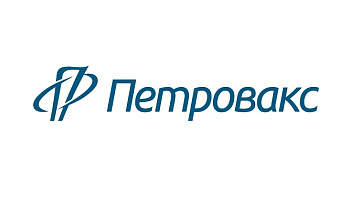
Petrovax sponsors All-Russia Forum ‘Public Immunity-2019’
On 27 November 2019, Moscow was the venue of the All-Russia Forum ‘Public Immunity-2019’ hosted by the Public Opinion Foundation, Vademecum Journal, and Non-Profit Partnership ‘National Association for Healthcare-Associated Infection Management’ (NP NASKI). The event was also sponsored by Russia’s Ministry of Health (MoH) and the Agency for Strategic Initiatives. It attracted more than 200 delegates representing all levels of the government, expert and public groups, private and public healthcare entities. Petrovax was among the forum sponsors.
The discussion focused on the pressing issues associated with basic healthcare principles and the importance of immunization and preventive vaccination. The experts spoke on the ways to counter ‘vaccine nihilism’ and the role of vaccination in life expectancy, methods to implement advanced R&D results and technologies in vaccine manufacturing in Russia. They also discussed the world’s good vaccination practices to be adopted and benefit from.
Russia’s Health Minister Veronica Skvortsova delivered an opening speech and noted that an improvement in the population’s health and immunity should become a national priority. The delegates gave special attention to the National Strategy for Immunization Development Until 2035 drafted by the MoH.
M.P. Kostinov, Head of Preventive Vaccination and Immunotherapy Laboratory of I.I. Mechnikov Research Institute of Vaccines and Sera, spoke about the role of adjuvants as components of influenza vaccines at the panel ‘Intersectoral approach to infectious disease prevention. The use of combination vaccines’. The speaker noted that one of the key areas of the future vaccine development was associated with adjuvants. «In Russia, azoximer bromide, a unique locally developed adjuvant, has been used for more than 20 years in the Grippol influenza vaccines. Azoximer bromide development as a key element of an antigen-saving technology provides for an efficacious humoral and cell-mediated immune response at lower viral antigen doses. The studies have demonstrated the ability of azoximer bromide to promote maturation and migration of major human antigen-presenting cells, i.e. dendrite cells, due to which a 5-µg dose of each viral strain is efficacious and drives a fast and strong immune response. An azoximer bromide adjuvanted vaccine form a long-term cell memory. The memory cells make it possible responding to the viral strains that were the ingredients of the preceding-season vaccines. They also provide for boosting the protective efficacy in case of a late epidemic season when 6+ months elapse between the vaccination and disease incidence peak», said the expert.
By way of winding up, the expert noted that currently, in line with the WHO guidelines, all vaccines must be improved with a focus on the formation of a more efficacious and long-lasting immune response. At the same time, safety assurance when making adjuvants part of the vaccine formula is one of the Global Vaccine Safety priorities.


